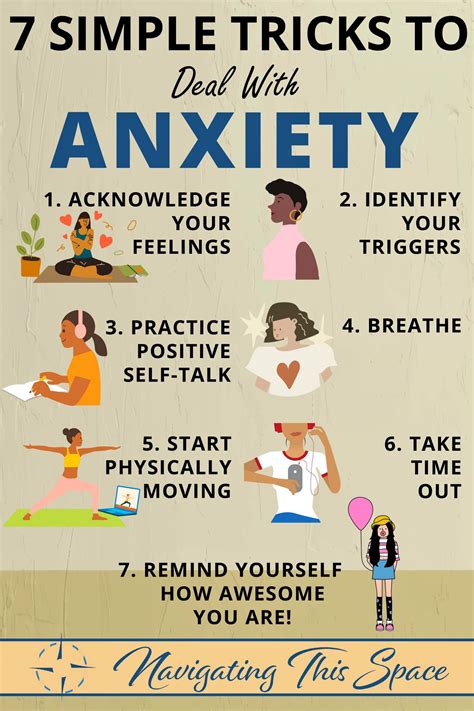How to Deal With Anxiety: Practical Strategies for Finding Calm
Anxiety. That persistent feeling of unease, worry, and fear that can creep into our lives and disrupt our peace. It's a common experience, but that doesn't make it any less challenging. This guide offers practical strategies to help you manage and cope with anxiety, empowering you to reclaim your sense of calm and well-being.
Understanding Your Anxiety
Before diving into solutions, it's crucial to understand the nature of your anxiety. Is it generalized anxiety disorder (GAD), social anxiety, or related to specific triggers? Identifying the root cause can significantly influence your approach to managing it. Consider keeping a journal to track your anxiety levels, triggers, and the situations that exacerbate your feelings. This self-awareness is your first step towards effective management.
Practical Strategies for Anxiety Relief
Here are some proven techniques to help you navigate anxiety:
1. Mindfulness and Meditation: Finding Your Inner Peace
Mindfulness involves focusing on the present moment without judgment. Simple practices like deep breathing exercises or paying attention to your senses can ground you and reduce racing thoughts. Meditation, even for a few minutes daily, can significantly improve your ability to manage anxious feelings. There are numerous guided meditation apps available to help you get started.
2. Physical Activity: The Power of Movement
Exercise is a powerful antidote to anxiety. Physical activity releases endorphins, which have mood-boosting effects. Whether it's a brisk walk, a yoga session, or a gym workout, find an activity you enjoy and make it a regular part of your routine. Aim for at least 30 minutes of moderate-intensity exercise most days of the week.
3. Healthy Diet and Sleep Hygiene: Fueling Your Well-being
What you eat and how you sleep profoundly impacts your mental health. A balanced diet rich in fruits, vegetables, and whole grains can stabilize your mood. Prioritize getting 7-9 hours of quality sleep each night. Establish a relaxing bedtime routine to promote better sleep hygiene.
4. Cognitive Behavioral Therapy (CBT): Restructuring Negative Thoughts
CBT is a type of therapy that helps you identify and challenge negative thought patterns contributing to your anxiety. A therapist can guide you in developing coping mechanisms and healthier ways of thinking. CBT is highly effective for managing anxiety disorders. If you're struggling, seeking professional help is a sign of strength, not weakness.
5. Social Support: The Importance of Connection
Connecting with others is vital. Talk to trusted friends, family members, or join support groups. Sharing your feelings can provide a sense of relief and validation. Remember, you are not alone.
6. Relaxation Techniques: Calming Your Nervous System
Explore various relaxation techniques, such as progressive muscle relaxation, where you systematically tense and release different muscle groups. Deep breathing exercises and listening to calming music can also help reduce anxiety symptoms.
When to Seek Professional Help
While these strategies can be highly effective, it's essential to recognize when you need professional support. If your anxiety is significantly impacting your daily life, interfering with your work or relationships, or causing significant distress, seeking help from a mental health professional is crucial. They can provide a proper diagnosis and develop a personalized treatment plan tailored to your specific needs.
Remember: Managing anxiety is a journey, not a destination. Be patient with yourself, celebrate your progress, and don't hesitate to seek support when needed. You deserve to live a life free from the overwhelming grip of anxiety.
